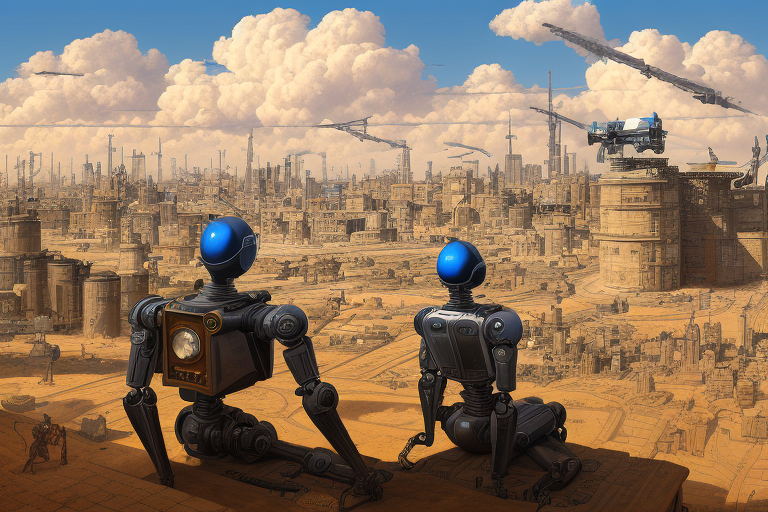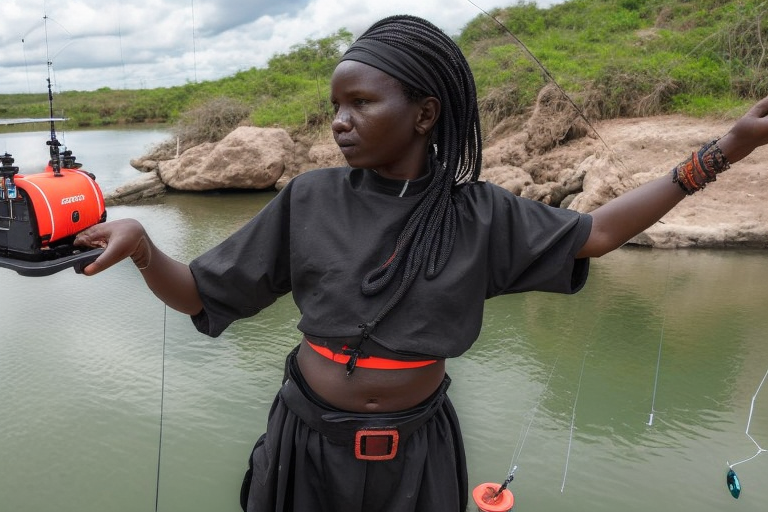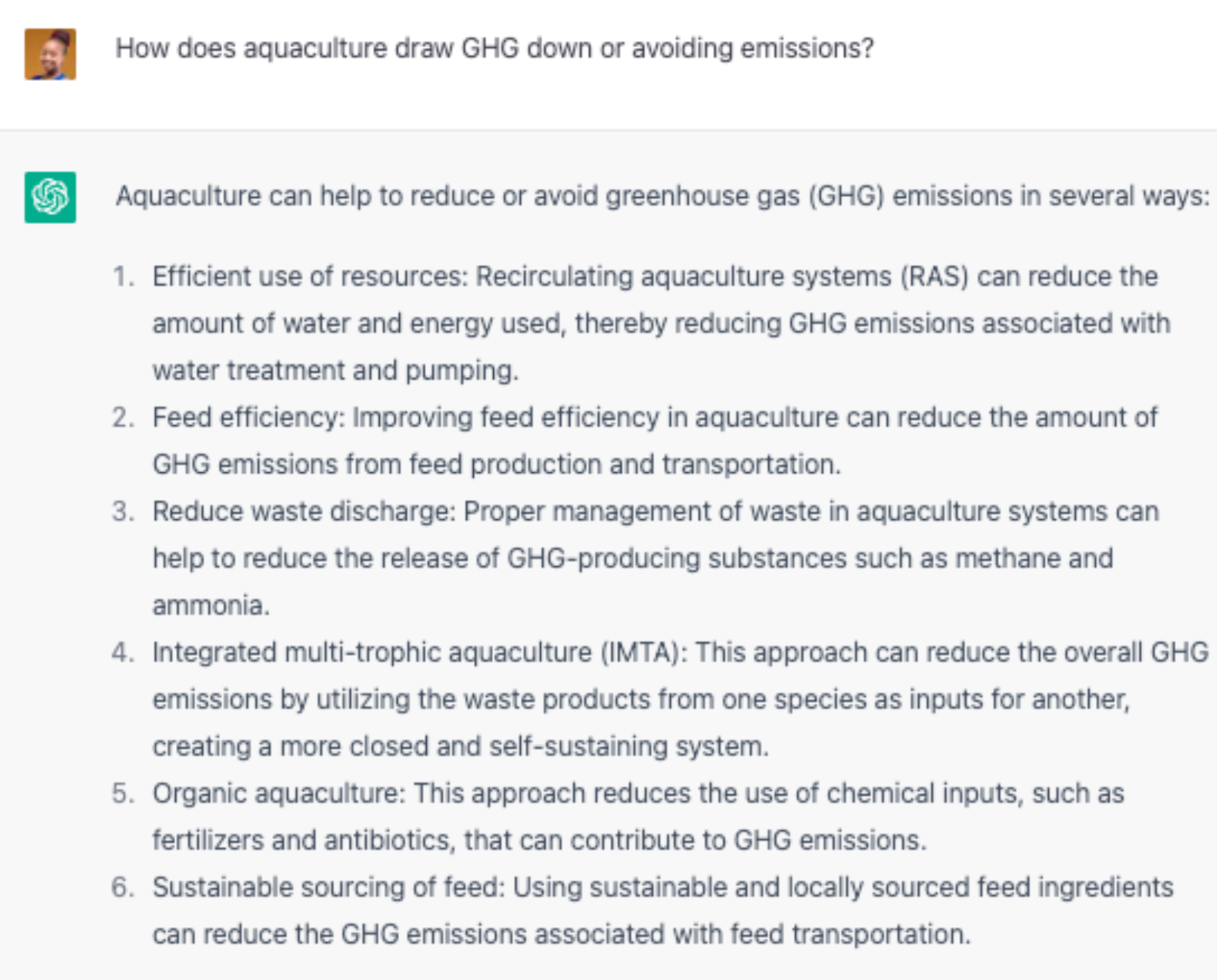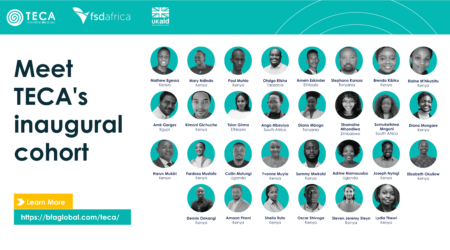Climate innovation for impact: The role of generative AI in serving vulnerable populations

Generative AI is a brand new kind of software innovation that works amazingly well for a range of complex tasks, from offering suggestions while designing board games to offering original ways to build on existing ideas. Instead of being designed by engineers, it has learned directly from a vast amount of Internet content, which means that we need to experiment with it to understand the concrete ways it can help us.
These new AI models represent another way to navigate and interact with the Internet’s information (and misinformation!), promising large productivity boosts to knowledge workers. What’s more, the performance of generative AI continues to grow exponentially without a clear ceiling in sight. More and more models are coming out at a furious pace, from DeepMind’s AlphaFold to Google’s Bard to OpenAI’s recent GPT4 and Bing’s chatbot, to name a few.
We can expect these breakthroughs to have fascinating effects on the tech industry and broader society, both positive and harmful. Closer to the work we do at BFA Global, we believe this new technology offers startups working in vulnerable communities a wide range of opportunities that are worth exploring deeper.

What’s in it for vulnerable populations?
Unlike prior tech revolutions, there are reasons to expect that this one will reach low-income communities at a similar pace to more affluent consumers. After all, this is essentially a software (and not a hardware) transition and so all 5.4bn existing phone users can readily interact with AI chat tools. These are very early days but we are very intrigued given our preliminary tests within our internal workflows as well as our collaboration with our startup partners. We will analyze the potential we see following Catalyst Fund’s AAA Framework for Accessible, Affordable and Appropriate products.
To begin with, one of the possible benefits of generative AI for startups working in vulnerable communities is that it might reduce barriers associated with low levels of literacy and therefore boost access. The interface with this software is very simple and very human: just words. We mostly access it through written text but it’s easy to imagine an interface powered by Alexa commands or whatsapp voice messages. Similarly, we could exchange text with a chatbot through an SMS interface, so we can already serve every phone user out there.
Generative AI also enables graduate-level intelligence that can be used to chat about customer service, sales, customer success and advice. Such a chatbot would require monitoring by humans, particularly for sensitive conversations and rogue “hallucinations”, but could otherwise be scaled tremendously. In that regard, chatbots could power smart products at high volumes for a very very low cost: for example, ChatGPT’s API would cost $0.002 for approximately 750 words (for comparison, this whole essay is slightly over 1100 words). These low and shrinking prices will enable more affordable tech-and-touch business models.

We can foresee cheaper and faster software products as these AI tools speed up the iterative cycles that all startups follow. For example, AI tools can co-write software for you, making programmers 55% faster. And they can accelerate your UI/UX Design processes. They also can save time for product managers and create a product onboarding video in minutes and in 120 languages . All combined, these tools should reduce time-to-market for new products, boding well for startups forming now to tackle our climate crisis.
Finally, products can be made more appropriate for users given the broad learning that is captured within these models, so many trades and industries can be served directly. In addition, ChatGPT can already use dozens of languages at various grammar levels to conduct tasks such as generation, dialogue, summarization, translation and more. By embedding this language and context-specific intelligence in vertical applications, we can imagine it soon providing the just-in-time learning experience that makes a difference for low-income adult learners.
Early Ideas from TECA
TECA is a venture launcher managed by BFA Global and funded by FSD Africa as an initiative within the CIFAR Alliance. We just announced our first wave of 7 companies and we have been exploring with them how we might use AI to make a positive impact on vulnerable communities. We experimented with ChatGPT as a brainstorming “partner” and we were delighted by how helpful it was even to experts in niche fields.

Here are a few examples of the ideas we came up with:
- Help community-based organizations prepare competitive proposals and facilitate cheaper and faster reporting, both of which are significant barriers to access global donors
- Onboard local community members and train them on techniques for carbon monitoring and validation (addressing a barrier for equitable access to carbon markets)
- Provide accessible advice to aquafarmers based on real-time data from their fish cage, at a language level they can understand
- Support borrowers by explaining credit terms, by identifying investment opportunities or by sharing best practices
Managing these types of customer tasks usually requires qualified personnel, which in turn can become a bottleneck to scalability. By offering a first-level of support, these chatbots might make that personnel much more productive, freeing them from repetitive tasks so they can focus on monitoring the system and tackling the most complex cases.

Looking ahead: from dreaming to deploying
As we recover from the initial awe, we are itching to responsibly test these new technologies in the field. We have lots of questions that can only be answered via practical experiments. Here are a number of them that hopefully get us all thinking about the potential for impact and also the unexpected consequences:
- How can these technologies benefit low-income vulnerable populations by making them more productive, educated and effective?
- How much effort and cost will be required to integrate these technologies within fintech and climate-smart products?
- How will we scale the technology while keeping it accessible and usable for people with limited digital literacy?
- What steps can we take to ensure that the technology is used ethically to benefit the community?
- How do we correct any biases originating from its source material? In particular, how might we inject feedback from the users back into the system?
In conclusion, we believe that generative AI could be a game-changer for startups working in vulnerable communities, if harnessed mindfully and responsibly with adequate ethical guidance and oversight. AI has the potential to reduce access barriers and could enable cheap and scalable intelligence to build better products. At TECA, we’re excited to see how our startups continue testing these technologies to make a positive impact on the world. We invite you to join us in this exploration. And yes, about half of this post was drafted by an AI tool (we’ll challenge you to identify which half!).

![[Press Release] Catalyst Fund announces $2 million investment into 10 startups accelerating Africa’s adaptation and resilience to climate change](https://bfaglobal.com/wp-content/uploads/2023/01/Featured-k11-450x250.png)

